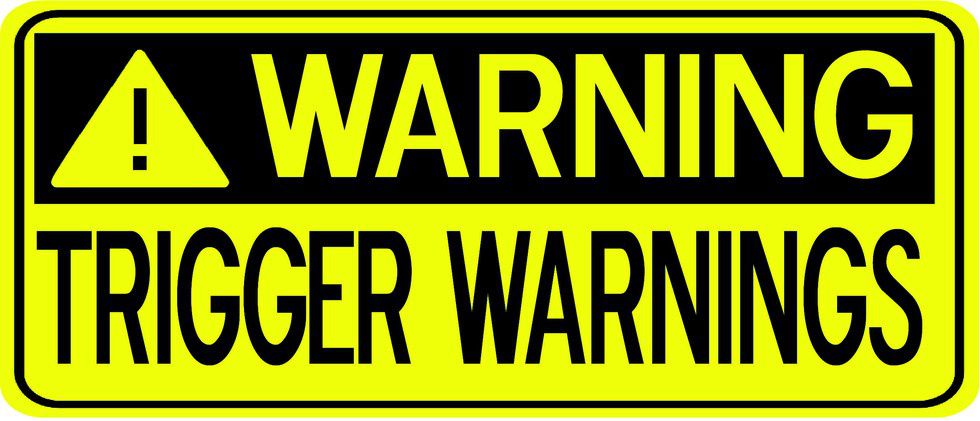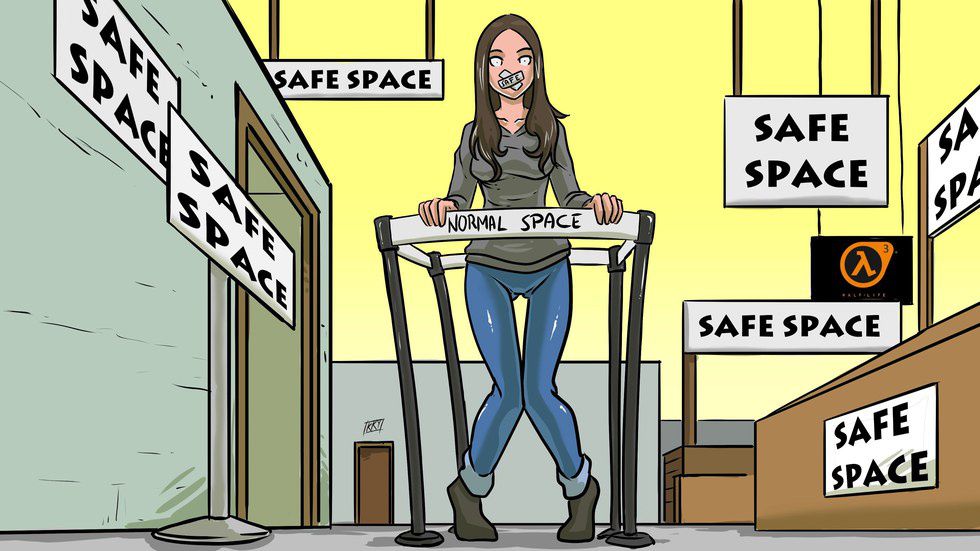The University of Chicago, one of the nation’s most esteemed higher education institutions, sent out their expected letter welcoming incoming freshmen earlier this week. In this letter, written by Dean of Students in the College John Ellison, makes a startling claim about the University: “Our commitment to academic freedom means that we do not support so-called ‘trigger warnings,’ [...] we do not condone the creation of intellectual ‘safe spaces’ where individuals can retreat from ideas and perspectives at odds with their own.”
For those of you who are unfamiliar with these terms, a trigger warning is usually when a text or discussion topic contains sensitive material that may make a student uncomfortable to the point where they would wish to leave the room. For example, a gender studies professor may hand out a text that mentions a rape somewhat graphically - before the students read it, they say something along the lines of “Just to let you know, there is explicit mention of sexual assault in this text. If at any point you need to leave the room, please feel free to do so.” This benefits students who are survivors of sexual assault and would have to vividly relive the memory of the attack if they were forced to sit there and participate in this particular lesson.
Recommended for you
Likewise, safe spaces are groups, clubs, or even physical areas where students are encouraged to be themselves and not be threatened by the possibility of being called slurs, being a target of racism/homophobia/transphobia/etc., or otherwise made uncomfortable for being who they are. A wonderful example of a safe space is group therapy, where patients are permitted to talk about their struggles without being ridiculed or judged.
Many University of Chicago students have expressed their disagreement with Ellison’s statement. While it’s true that censorship hinders intellectual pursuits and is nothing but detrimental to education, neither trigger warnings nor safe spaces are focused on censorship; trigger warnings in particular are often compared to ESRB ratings for movies and video games. They are just a warning for the viewer or consumer, placing the decision on them as to whether or not it is safe or wise to continue. In regard to safe spaces, no one is forced to join a safe space. The people who occupy the safe space are the ones who make the rules: i.e., a club for LGBTQ+ people and allies may make the rule “there will be no use of the slur ‘tr*nny’ in this space.” This is what makes it safe; since “tr*nny” is a slur used against transgender people, many trans people do not feel comfortable or even safe in circumstances where this word is used casually, especially cis (non-trans) people. If anyone refuses to adhere to this rule, they do not have to be a part of the group. They are free to use the word as often as they please in the outside world, but not in that particular safe space.
I am a young woman who struggles with mental illness. While talking or reading about mental illness in a class will not incapacitate me, a simple trigger warning of “Hey, in this video we are going to watch today, there is mention and depiction of suicide. If this makes you uncomfortable, you are welcome to take a break in the hallway” is always appreciated. I don’t know about other pro-trigger-warning people, but it gives me a chance to prepare myself for something that would have been shocking and upsetting to me had it been sprung upon me with no warning. And I know, if I need to, I am allowed to go into the hallway so I don’t need to relive the unhappiest time of my life.
Here’s the thing: trigger warnings and safe spaces are not frivolous. They are not extraneous. They are accommodations for students who may be affected by mention of assault or a particular slur. No one is forced to join a safe space. You are perfectly allowed to gloss over a trigger warning that does not apply to you, just like you don’t pay any attention to the “crude humor” rating for the Sims games.
While I am not a student of the University of Chicago, I have many ties to the institution - namely, all three of my immediate family members and an overwhelming number of my adult friends are University of Chicago alumni or current students. Maybe it is not my place to feel this way, but I am disappointed that the struggles that the incoming freshman for the University of Chicago may have have been so blatantly dismissed by their future faculty and staff. If I were to get a letter like this from my school, I would certainly be very dismayed by it.
University of Chicago bigwigs: trigger warning for shade and expression of embarrassment on your behalf.




















